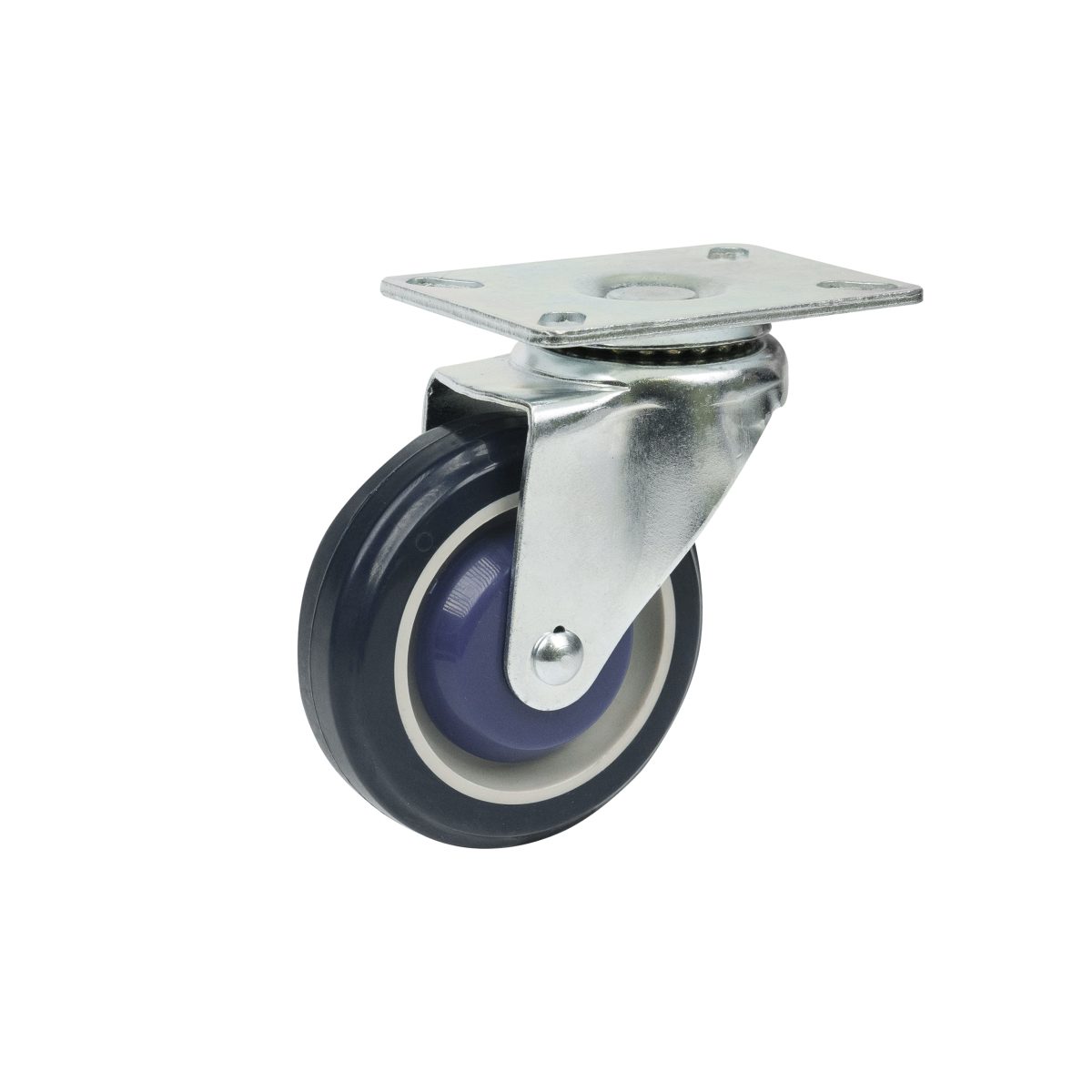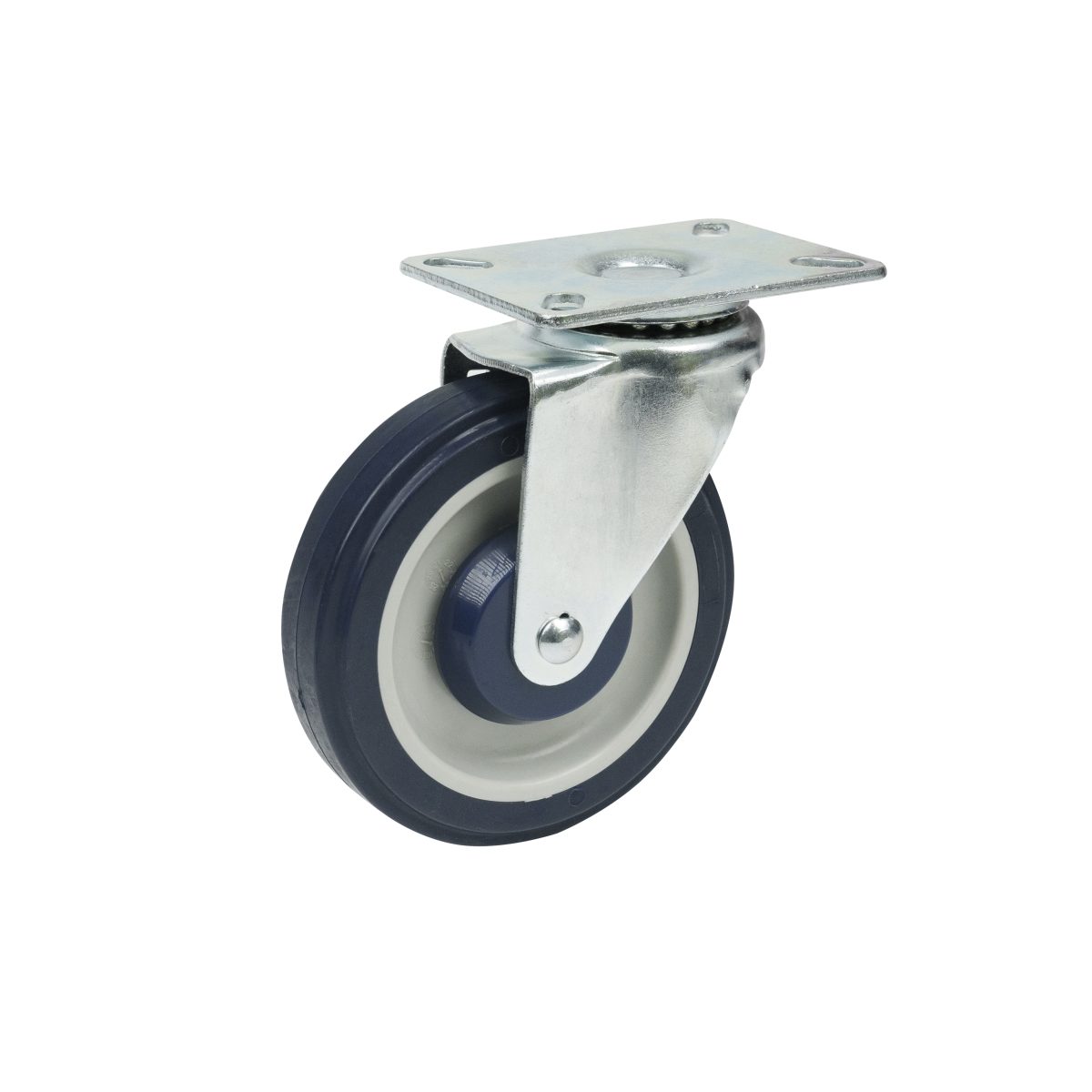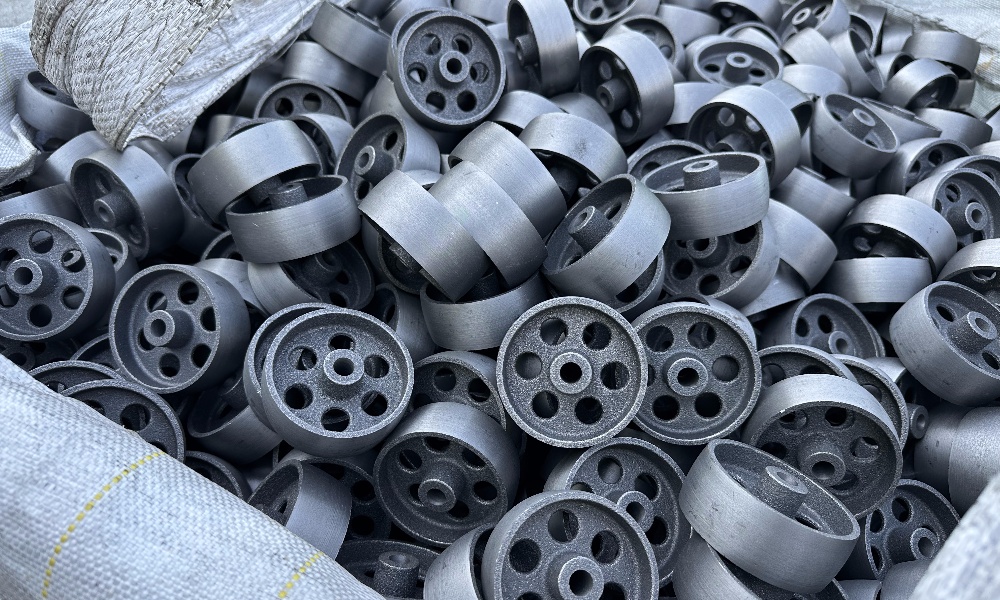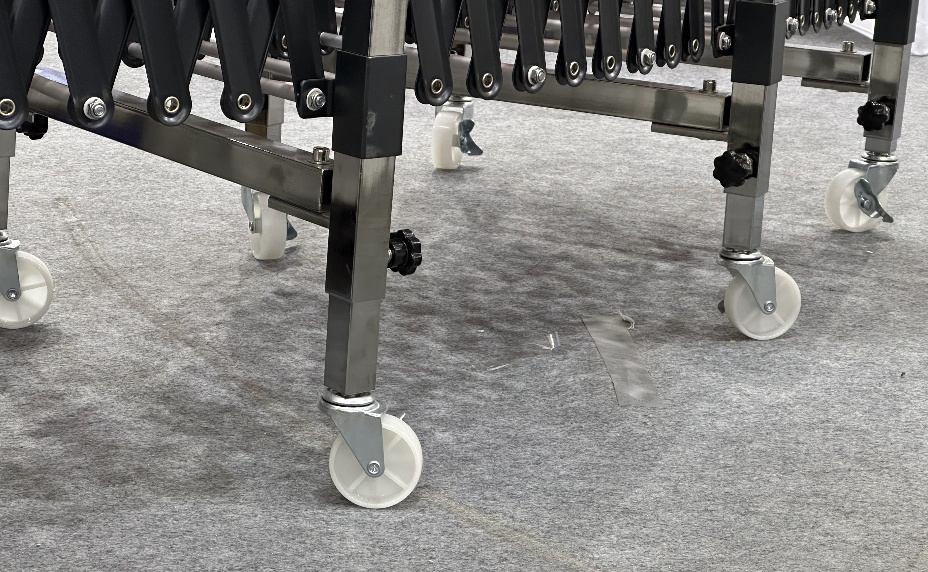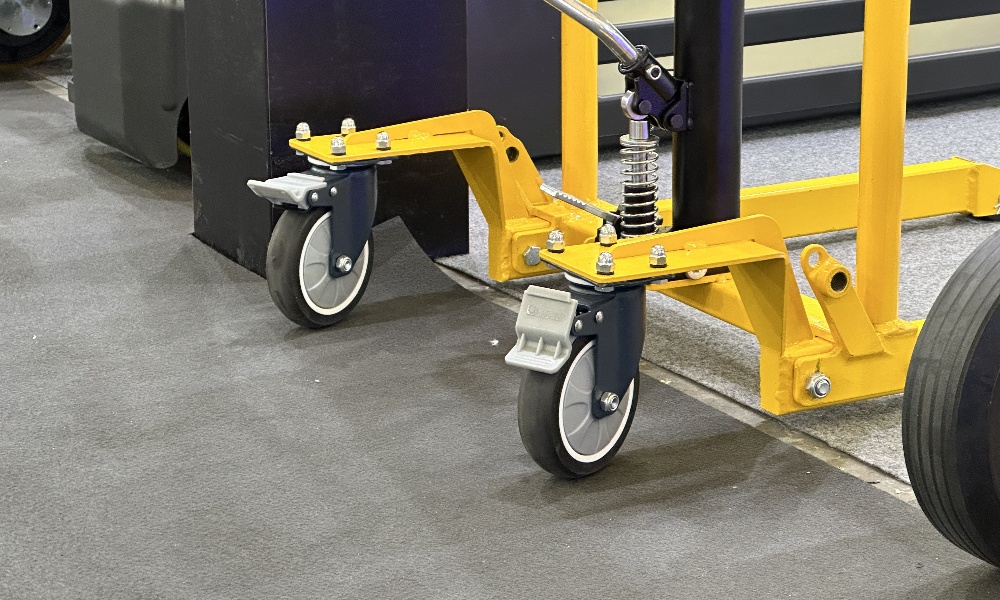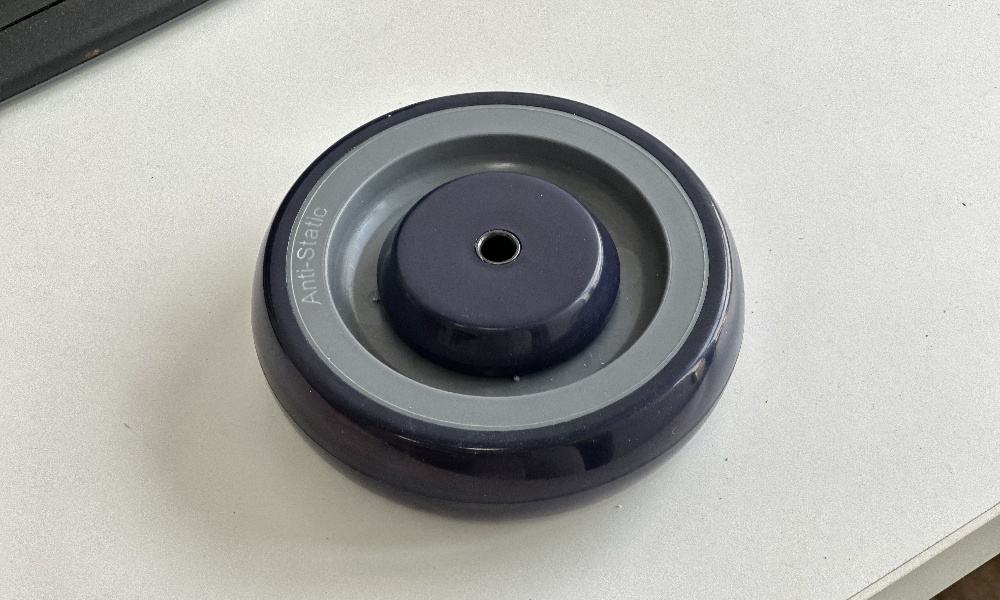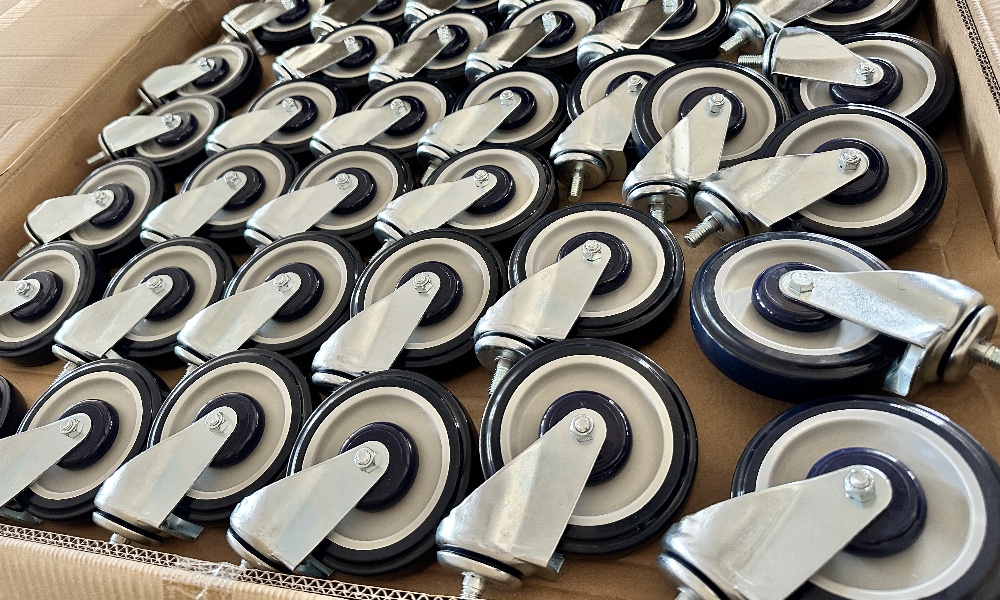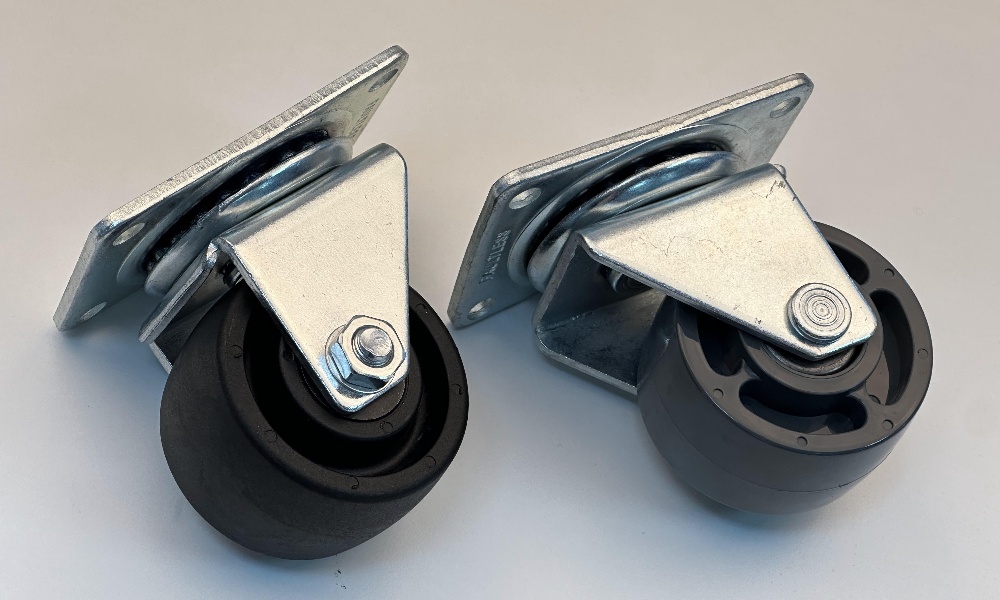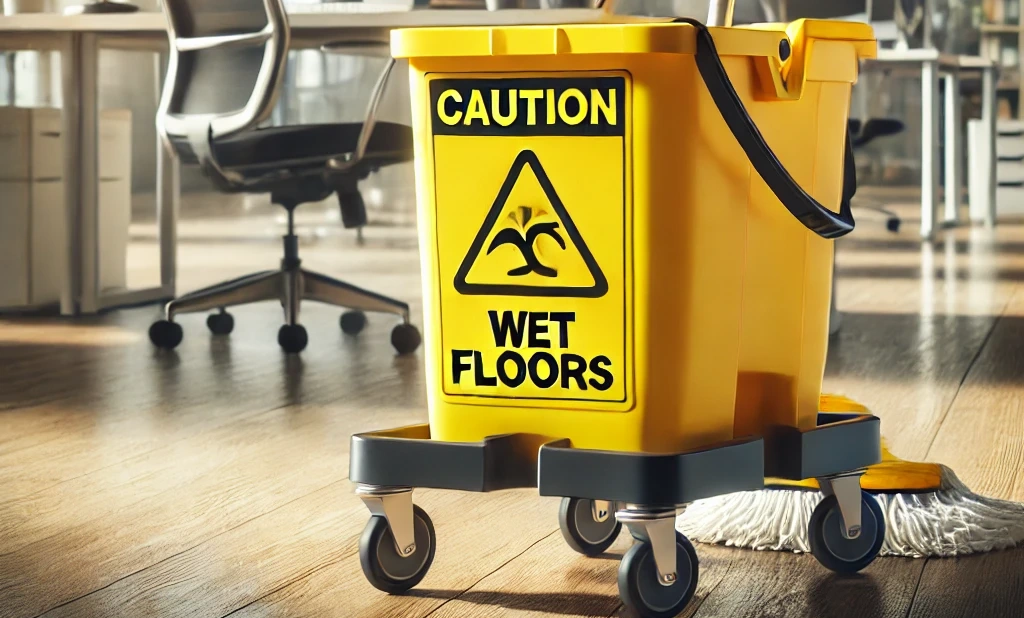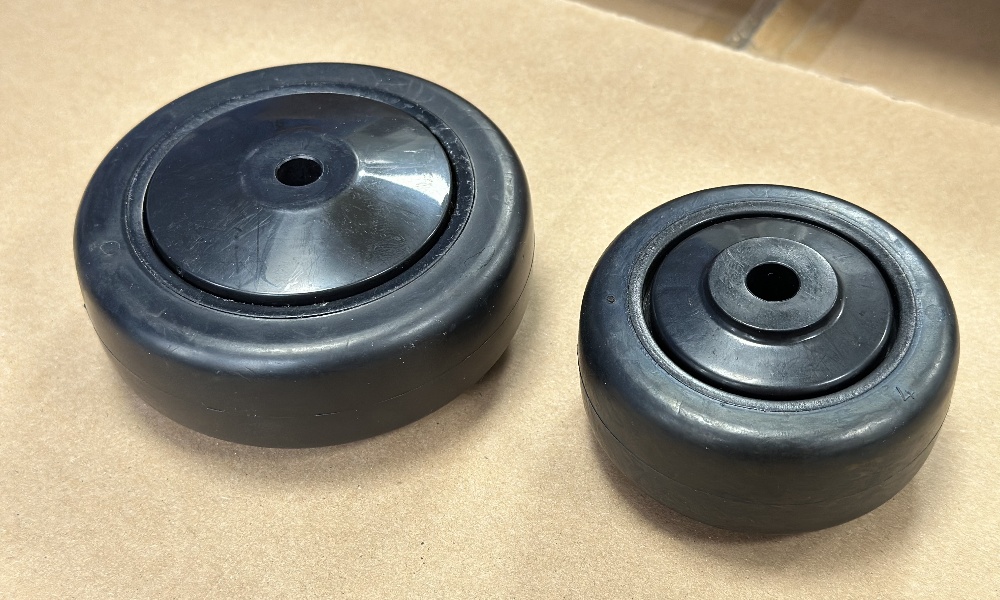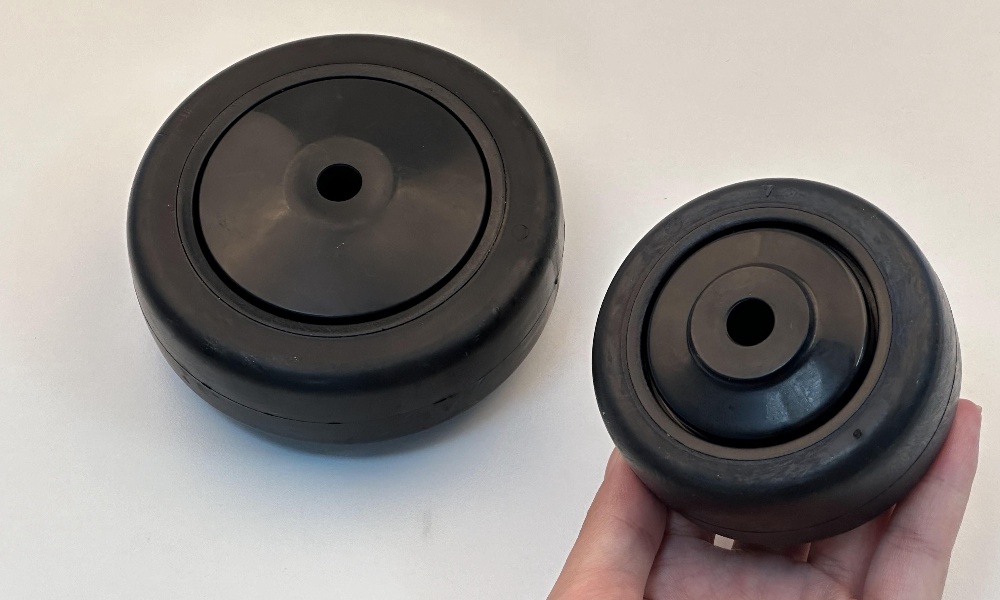Are Polyurethane Wheels Good?
If you’re in the market for casters, whether for industrial equipment, office furniture, or home use, you’ve likely come across polyurethane wheels. You might be wondering: are polyurethane wheels good?
In short, yes!Polyurethane wheels are an excellent option for many applications, offering a versatile and high-performance solution. They combine durability, safety, and versatility, making them popular in various industries. This article dives into why polyurethane wheels are a reliable choice and how they can benefit your specific needs. By the end, you’ll have a clear understanding of why investing in polyurethane caster wheels is a smart move.

What Are Polyurethane Wheels?
Polyurethane wheels are made from polyurethane, a type of polymer that combines some properties of both rubber and plastic. Polyurethane can be engineered to be soft and flexible or rigid and durable, giving it versatility for different uses. As wheels, polyurethane combines the durability and toughness of plastic with the shock absorption and noise reduction of rubber, making them highly efficient and adaptable. This unique mix of attributes has made polyurethane wheels popular in industrial, commercial, and residential applications, including casters for carts, trolleys, office chairs, and heavy machinery.
Key Benefits of Polyurethane Wheels
-
High Load-Bearing Capacity
One of the primary advantages of polyurethane wheels is their ability to handle heavy loads. Polyurethane is incredibly strong, allowing it to support heavier weights than traditional rubber wheels. This load-bearing capability is crucial in industrial settings where equipment, machinery, and transport carts are often loaded with hundreds, if not thousands, of pounds. Polyurethane wheels distribute weight evenly, reducing stress on floors and enhancing stability. With these wheels, you can trust that your equipment is well-supported, even under substantial weight.
-
Durability and Longevity
Polyurethane is remarkably resistant to wear and tear, extending the lifespan of wheels even in high-impact, high-wear environments. This material can withstand abrasion, chemicals, and harsh environments where rubber or plastic might deteriorate more quickly. For example, polyurethane wheels can roll over rough surfaces without degrading quickly, making them ideal for warehouse floors, rough terrains, and outdoor environments. For customers looking to reduce long-term maintenance costs, polyurethane wheels offer a cost-effective and durable solution.
-
Noise Reduction
Unlike metal wheels or harder plastic alternatives, polyurethane wheels provide a quiet, smooth ride. They absorb shocks and vibrations, reducing noise significantly—an advantage in workspaces where noise levels matter, like offices, hospitals, or retail spaces. Workers appreciate quieter environments, and in areas where patients or customers are present, the quiet operation of polyurethane wheels is a clear advantage. For businesses, investing in polyurethane casters can create a more comfortable and productive atmosphere.
-
Floor Protection
Polyurethane is a softer material than metal or plastic, allowing it to roll smoothly without scratching or damaging floors. It’s an excellent choice for indoor use, especially on sensitive flooring like hardwood, tile, or laminate, which can scratch easily with harder wheels. In facilities where floor appearance matters—such as showrooms, hospitals, or offices—polyurethane wheels help maintain floors, reducing the need for repairs and refinishing. This characteristic is especially beneficial when casters are frequently in motion or need to pivot on delicate surfaces.
-
Excellent Traction and Stability
Polyurethane wheels offer impressive traction, preventing slips and enhancing control when maneuvering equipment or furniture. This quality is essential in environments where stability and safety are priorities, like warehouses or medical facilities. Unlike hard plastic wheels, polyurethane maintains its grip, even on smoother surfaces, reducing the risk of equipment sliding unexpectedly. For high-speed applications or carts requiring precise control, polyurethane wheels provide the stability needed to operate safely and efficiently.
Applications of Polyurethane Wheels
Polyurethane wheels are well-suited to a broad range of applications. Here are some areas where they’re particularly beneficial:
-
Industrial Equipment
Their high load-bearing capacity makes them ideal for moving heavy machinery and materials in warehouses, factories, and construction sites.
-
Medical and Laboratory Equipment
Quiet and floor-friendly, polyurethane wheels are used in hospital beds, medical carts, and laboratory equipment, where floor preservation and noise reduction are important.
-
Office and Retail Carts
Polyurethane wheels ensure smooth movement across different floor types without damaging surfaces, making them popular for shopping carts, office chairs, and mobile retail displays.
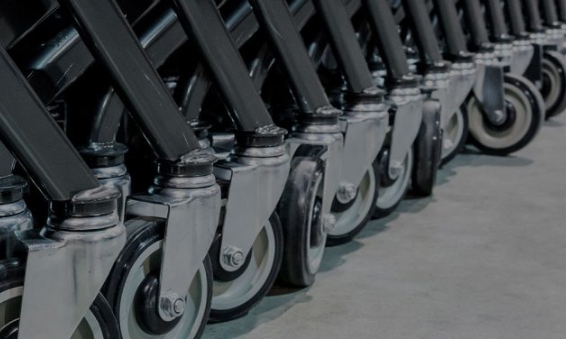
-
Food Industry
In food production and distribution, equipment often needs to resist various chemicals. Polyurethane’s resistance to oils and chemicals makes it ideal for this industry, where sanitation and durability are essential.
Comparison with Other Wheel Materials
-
Polyurethane vs. Rubber
Rubber wheels are known for their cushioning and noise-reduction abilities, but they often wear down faster, especially under heavy loads. Polyurethane wheels, by contrast, handle heavier weights and last longer, even in demanding environments. Polyurethane is also more resistant to oil and chemicals, whereas rubber may degrade when exposed to such substances. For applications where durability and resilience are prioritized, polyurethane typically outperforms rubber.
You can check out this article to get the details:https://www.targetcasters.com/polyurethane-vs-rubber-casters-which-suits-you-better/
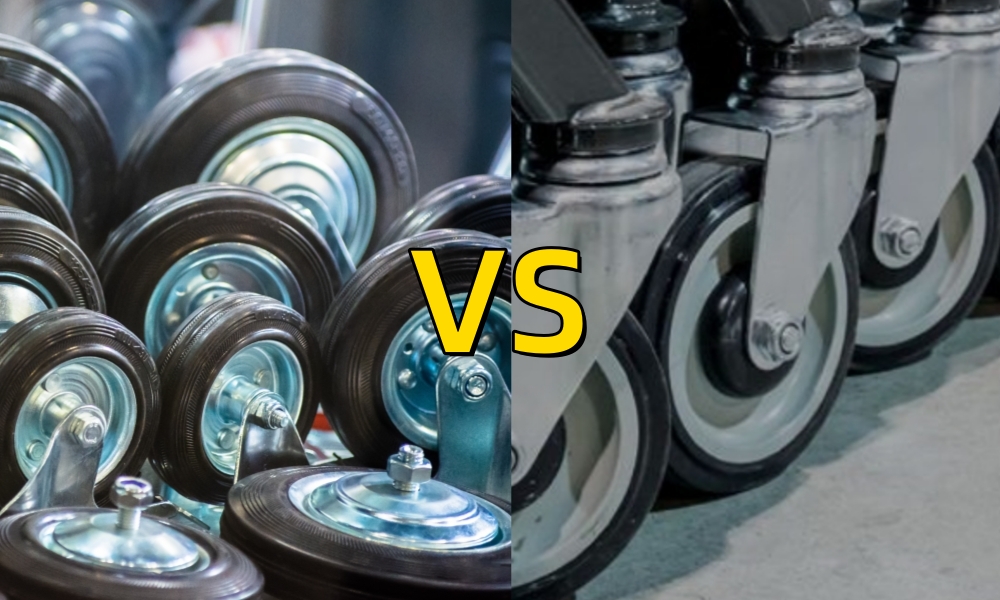
-
Polyurethane vs. Metal
Metal wheels are durable and can support high loads, but they can be noisy and harsh on floors. Metal wheels also lack traction on smooth surfaces, making them less stable than polyurethane options. Polyurethane wheels, with their shock absorption and floor-friendly qualities, are often the superior choice in environments where noise and floor protection are concerns. In areas where sensitive equipment is transported, polyurethane wheels prevent jolts and sudden impacts that metal wheels may cause.
-
Polyurethane vs. Plastic
Plastic wheels are lightweight and inexpensive but can crack or wear down rapidly under stress or with exposure to certain chemicals. Polyurethane, while more expensive than plastic, offers greater resilience and a higher weight capacity. In professional or industrial settings, polyurethane wheels are a worthwhile investment due to their longevity and reliable performance.
Why Choose Polyurethane Caster Wheels?
Investing in polyurethane casters is a smart choice for those who need durable, high-performance wheels that balance weight capacity, noise reduction, and floor protection. Polyurethane wheels offer unmatched versatility, making them ideal for environments as varied as medical facilities, factories, offices, and homes. By choosing polyurethane casters, you’re selecting a wheel type that is engineered to last, saving you from the frequent replacements and repairs often associated with less durable materials.
Tips for Choosing the Right Polyurethane Caster Wheels
When selecting polyurethane wheels, consider these factors to ensure they’re well-suited to your needs:
-
Load Capacity
Always choose wheels that exceed the maximum load you expect to handle. Look at the load ratings of each caster to avoid overloading.
-
Diameter and Width
Larger wheels generally handle weight better and provide easier movement. Consider wheel size based on the types of surfaces they’ll roll over and the equipment they’ll support.
-
Hardness
Polyurethane wheels come in various hardness levels. Softer wheels provide more shock absorption and grip, while harder wheels handle heavier loads and last longer.
-
Swivel vs. Fixed Casters
For maximum maneuverability, select swivel casters. However, fixed casters provide more stability, which can be beneficial for heavy equipment.
How to Buy the Best Polyurethane Casters
If you’re ready to upgrade your equipment with polyurethane casters, we offer a wide selection of options tailored to meet any requirement. Whether you need a set for industrial machinery or for office chairs, our polyurethane caster wheels provide reliability and performance. Simply browse our product catalog, where you can find specifications and load ratings for each model. With fast shipping and excellent customer service, we’re here to help you select the best polyurethane wheels for your application.
Final Thoughts: Why Polyurethane Wheels Are Worth the Investment
Polyurethane wheels are an exceptional choice for anyone looking for a long-lasting, durable, and versatile wheel solution. They are engineered to provide superior performance in noise reduction, load handling, floor protection, and stability. When you choose polyurethane casters, you’re investing in a product that combines the best of both plastic and rubber, resulting in a wheel that withstands heavy use while protecting your floors and ensuring a smooth, quiet ride.
Upgrade your equipment today by choosing polyurethane caster wheels that meet your exact needs. Take a look at our selection and make the switch for durability, safety, and peace of mind.


